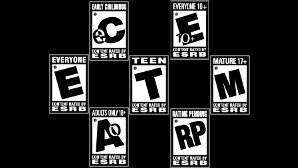Bill would legally enforce ESRB ratings
Up to $5,000 in fines for selling M-rated games to anyone under 17

Pretty much any game carried in a U.S. retail store has a rating from the Entertainment Software Ratings Board on its packaging. But they are not legally required--much like the MPAA ratings given to films, they're voluntary self-classification on the industry's part. Representative Jim Matheson (D-Utah) wants to get rid of that "voluntary" part.
Matheson introduced House Bill H.R. 287 on Monday, which would fine any person up to $5,000 per violation for: selling any game without a rating on its packaging, selling any game rated "Adults Only" to anyone under 18, or selling any game rated "Mature" to anyone under 17. The "Video Games Ratings Enforcement Act'' would also require retailers to clearly display information about the ratings within 180 days of its enactment.
Few, if any, major retailers carry AO-rated games, and many are at least supposed to card customers buying M-rated games. But the bill would bring the U.S. in line with several European Union countries, including the UK, which have legislation requiring PEGI ratings on any games sold.
From the bill's text, it appears this could be used to prosecute smaller game creators for selling their projects online. For instance: Would Blendo Games need an ESRB rating to sell 30 Flights of Loving on its website or risk a $5,000 fine?
Blendo could get a rating for free, but it would still mean one more gatekeeper between small creators and potential consumers if enforced. We've contacted Rep. Matheson's office for clarification and will update this story when we know more.
Sign up to the GamesRadar+ Newsletter
Weekly digests, tales from the communities you love, and more
I got a BA in journalism from Central Michigan University - though the best education I received there was from CM Life, its student-run newspaper. Long before that, I started pursuing my degree in video games by bugging my older brother to let me play Zelda on the Super Nintendo. I've previously been a news intern for GameSpot, a news writer for CVG, and now I'm a staff writer here at GamesRadar.



